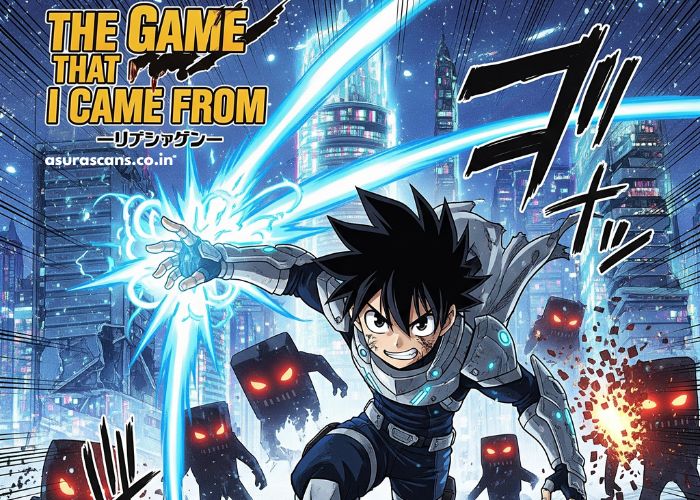| Point | Details |
|---|---|
| Protagonist | Main character (unnamed in episode) |
| Main Focus | Surviving a deadly high-stakes game |
| Conflict | Life-or-death challenges, rival players |
| Key Strength | Intelligence, strategy, adaptability |
| Theme | Survival, trust, betrayal, psychological tension |
The Game That I Came From is an intense manhua that captivates readers with its high-stakes survival narrative, clever strategies, and intricate character dynamics. Combining suspense, action, and psychological depth, this manhua draws readers into a dangerous world where every decision can mean life or death.
The story appeals to fans of strategic battles and mind games, offering not just action but also moral dilemmas, personal growth, and deep emotional engagement. Each chapter escalates tension, keeping readers hooked and eager for the next twist.
Story Overview
In this manhua, the protagonist is forced into a deadly game where survival depends on intelligence, quick thinking, and understanding opponents’ motives. Each episode reveals more about the game’s rules, the stakes, and the protagonist’s growing ability to navigate life-threatening situations.
The narrative excels in suspense, creating a constant sense of urgency. Mistakes can be fatal, and alliances can shift in an instant. This unpredictability makes the manhua both thrilling and thought-provoking, highlighting the importance of strategy and adaptability.
Key Point
1. Survival and Strategy
The central theme revolves around survival. The protagonist faces challenges that demand careful planning, foresight, and calculated risks. Each obstacle tests not only their skills but also their ability to read people and situations effectively. Fans of tactical storytelling will find this aspect particularly engaging.
2. Psychological Tension
The manhua dives deep into the psychological aspect of competition. Characters display complex emotions, including fear, determination, and cunning. This psychological layer adds depth, making readers question each decision and anticipate unexpected outcomes.
3. Trust and Betrayal
Alliances in the game are fragile. Trust can be a double-edged sword, and betrayal can happen at any moment. The manhua explores the consequences of relying on others and the impact of deception, which adds tension and unpredictability to the storyline.
Character Development
The protagonist’s growth is a focal point of the manhua. Initially overwhelmed, they gradually learn to leverage strategy, intellect, and psychological insight to survive. Their evolution demonstrates resilience, adaptability, and clever problem-solving.
Supporting characters also contribute significantly to the narrative. Rival players and potential allies create layers of conflict and intrigue, pushing the protagonist to think several steps ahead. Every interaction is meaningful, highlighting the high stakes and the intensity of the game.
Artwork and Visual Appeal
The manhua’s art style amplifies the tension and excitement. Detailed facial expressions convey fear, determination, and strategic thinking, while dynamic paneling captures fast-paced action and suspenseful moments. The game settings are visually immersive, helping readers feel the stakes and the environment’s intensity.
The combination of expressive artwork and engaging storytelling makes the manhua highly readable and visually compelling.
Why This Manhua Stands Out
The Game That I Came From stands out for its perfect blend of suspense, strategy, and psychological depth. The protagonist’s journey, coupled with unexpected twists and complex character interactions, keeps readers engaged from start to finish. The manhua balances thrilling action with intellectual challenges, making it appealing to a wide audience.
Conclusion
For readers who enjoy suspenseful, strategic, and psychologically intense stories, The Game That I Came From is a must-read manhua. Its combination of clever plotting, emotional depth, and high-stakes games ensures a gripping experience that keeps fans eagerly anticipating each new episode.

